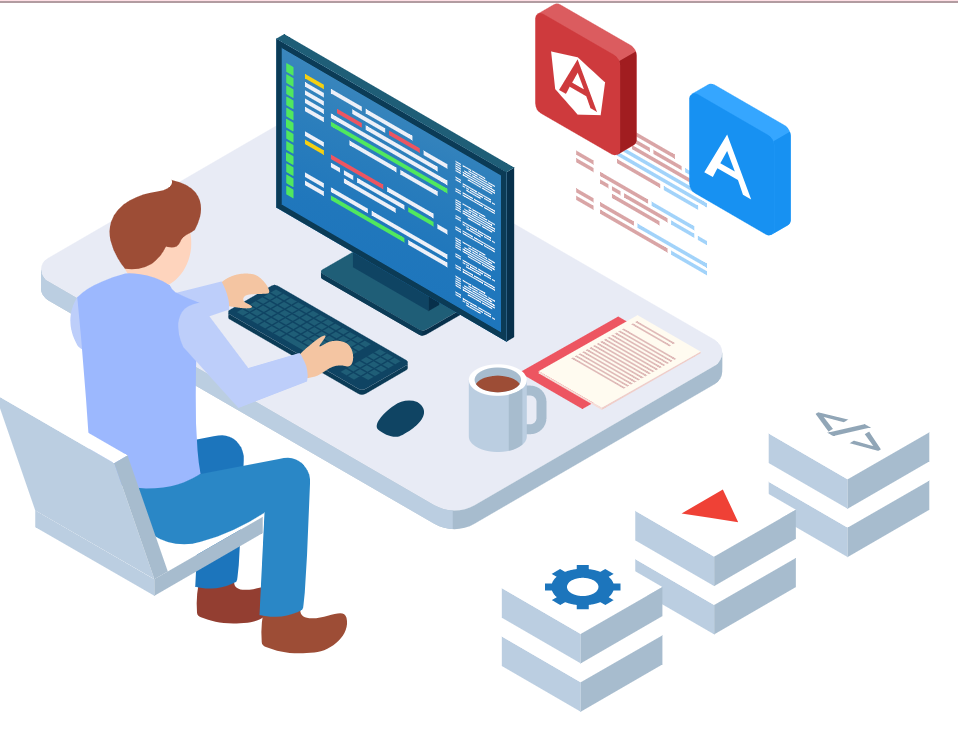Let’s Learn Everything About Nodejs in Depth
Node.js is an open-source, cross-platform runtime environment for developing server-side and network applications. Developers can use this tool for modern web development projects. For modern web developers, Node.js provides a set of JavaScript segment libraries and IDEs. Simplify the web application development process using its modules.
Server-side programming has become a constant trend as the usefulness and popularity of JavaScript increases over time. So the software developers and engineers decided to make a callback concept and started using the event-driven Node.js application.
The development of Node JS witnessed growing popularity as one of the JS frameworks and tools for designing and implementing an operating system with a rich user experience. The latest Node.js app runs on the JavaScript V8 engine that Google Chrome also uses, providing super-fast performance.
Common Things to Know About Nodejs
Sharing is Free, so it is Recommended:
Node.js development is beneficial for developers who like to keep sharing their knowledge. When you work in Node.js, you can get help quickly, and it's easy to share in the community. For example, you can share them with different developers and even original developers if you have many different packages. So they can save their time working on other types of fonts and packages.
Batteries Not Included
Node.js applications are not a concrete whole. Instead, the modules are divided into smaller sections that are then integrated and shared for ease of use. Thus, developers can design these packages from scratch.
This easy-going method of working with the Nodejs development company or community encourages them to experiment with their production. Developers handle one task at a time when the experiments are complete and run.
Fortify by JSON
JSON or JavaScript Object Notation stands for Convenient Composite Data Interchange Format. JavaScript developers have the opportunity to create APIs quickly and cultivate interoperability. It's so simple that you can express it in just five rail parsing descriptions. JavaScript Object Notation, or JSON, aids in dynamic data exchange and has become one of the mainstays of JavaScript.
Programmers in earlier days had to manipulate Javascript data wisely as there was no dynamic data in a browser. As per a web development company, the birth of global-purpose NoSQL databases, like MongoDB, was made possible by JSON. What developers once thought for JS has now become the international standard.
Small Modules that Work Fast
Node.JS is a framework divided into several smaller modules, two of which we can broadly call Node.JS application and Node.JS Core. However, we can use both together. Furthermore, they don't always need to be used together at the end of the server or client, making it more lightweight by not including the core or application collectively in all locations. Due to these benefits, many companies have taken on the task of providing Node.js development services.
Powered by Google Chrome
Powered by Google's V8 engine, Node.js works in the backend. The same runtime is needed in Google Chrome to run the JavaScript front end. However, the Node.js development team at Google made it one of the fastest and most dynamic runtimes compared to advanced JavaScript. Also, Google lists Node.js among other system engine powerhouses. Additionally, developers can debug with Google's development tools with Node.js' debugging feature, enabling front-end and backend debugging.
Pros of Nodejs
- Node Package Manager handles the installation and upgrade of reusable modules from the online collection and version and dependency management of reusable modules.
- Without consuming much memory, the event loop handles communication in real-time. This way, developers can spend more time working on the application's functionality instead of worrying about getting bogged down with too many queries.
- Nodejs is well instrumented for production use, which means it comes equipped with tools to help you bring your application to full production readiness and performance.
Cons of Nodejs
- Most core libraries are quite stable, and you can trust them to do the right thing. But the ecosystem itself is still somewhat immature. It is also difficult to assess the quality of a particular module, as functions to ensure the quality of the JavaScript code are missing.
- Nodejs is single-threaded means that one doesn't need to worry about cross-thread sync issues or shared mutable state. However, it also means that, unlike preemptive concurrency, the programmers themselves have to decide how to deal with concurrency, the default being no concurrency at all.
Final Thoughts
Our professionals at AppStudio state that JavaScript is ubiquitous in both browser and server, and credit goes to Node.js to make everything possible. Furthermore, it has always been stable, having compatibility with previous versions in most of its versions.
Node.js has already proven its worth in the Internet of Things. It simply states that the future of Node.js is bright and that this programming language is here to stay. Furthermore, this technology will remain the best for the development of web-based and mobile-based backend systems. Need help setting up a dedicated team of Node.js developers? Contact us and get a free consultation.



Comments
Post a Comment